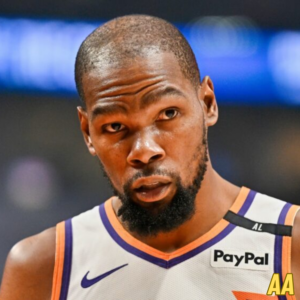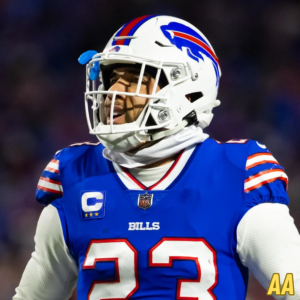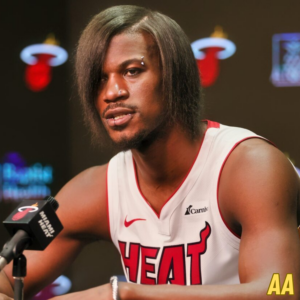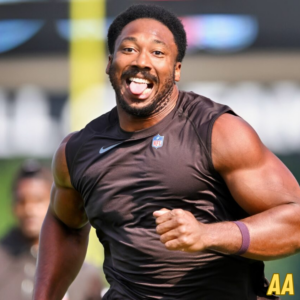The WNBA has owned the spotlight lately and continues to revolve around Caitlin Clark. The Indiana Fever rookie, widely regarded as one of the league’s brightest stars, was recently named TIME’s Athlete of the Year.
However, her remarks during the award ceremony regarding race and privilege have ignited a firestorm. They didn’t sit well with certain sections of her fan base, and the controversy has sparked debates about race, privilege, and accountability in sports.
The controversy
Recent headlines have been dominated by the rise in racist remarks, posts, and actions targeting the WNBA’s top Black players this season. For a league built on promoting diversity and inclusion, the irony of this moment is glaring. The Fever guard’s comments at the award ceremony were intended to bring attention to these disparities.
She openly discussed the privilege she experiences as a white player and emphasized the need for Black athletes to receive more recognition. However, her remarks drew sharp criticism, with some accusing her of apologizing for her race—a claim vehemently denied by her supporters.
WNBA legend Sue Bird spoke out about the controversy, offering her perspective.
“She isn’t apologizing,” Bird said. “I didn’t read that remark and think she’s apologizing for being White. What she’s doing is acknowledging how our country is set up in terms of race, which I thought was wonderful… And this faction of her fanbase that is now disgusted with her acknowledging [it] is just showing they were never really here for basketball.”
CC’s entry into the WNBA as the most highly touted rookie in years has coincided with the league’s growth in popularity. Attendance and viewership have surged, as have sponsorships—often disproportionately seen as favoring white players. The increasing visibility has brought praise and criticism, with racial dynamics at the forefront.
The racial situation
Throughout her rookie season, the Iowa product faced hostility from fans and opponents alike. The tension boiled over during the Fever’s playoff series against the Connecticut Sun. In Game 1, the Sun cruised to a dominant 93-69 victory. Still, Dijonai Carrington, a forward for the Sun, made contact with Clark’s eye during the game, leaving the rookie visibly shaken and sparking outrage among spectators.
The foul added to a growing list of targeted plays against the 22-year-old point guard. Players like Angel Reese and Chennedy Carter had already been accused of deliberately fouling her earlier in the season. Bird questioned whether the narrative surrounding these incidents would have been different if the reverse had been the case.
“I almost want to just pose some questions… If she [Clark] were Black, would that have changed how this played out for her? Would it have been a different story? Would it have been covered differently? If when DiJonai Carrington poked her in the eye, if it was two Black players involved. That’s just to me, the questions people need to be asking ourselves,” the four-time WNBA champion said.
In 2024, the Indiana rookie elevated women’s basketball to extraordinary levels, redefining the WNBA’s appeal and impact. Her leadership of the Fever sparked a surge in attendance compared to 2023, with a home average of 17,035 fans—the league’s highest. The Fever’s game against the Washington Mystics on September 19 shattered the WNBA attendance record, drawing 20,711 spectators.
Despite this success, the league faces critical challenges, including addressing racial tensions that risk undermining its progress and sustainability.
News
Breaking: An executive order prohibiting transgender people from playing women’s sports is about to be signed by Donald Trump.
BREAKING: Donald Trump Set To Sign Executive Order Banning Transgenders From Participating In Women’s Sports On February 5, 2025, President Donald Trump signed an executive order titled “Keeping Men Out of Women’s Sports,” which prohibits transgender girls and women from…
Regarding Donald Trump’s intentions to attend Super Bowl 59, Travis Kelce expresses his feelings rather clearly. tt
Travis Kelce Makes His Feelings Very Clear On Donald Trump’s Plans To Attend Super Bowl 59 It looks like Travis Kelce is taking a diplomatic and professional approach, focusing on the magnitude of the Super Bowl rather than any political…
With a massive trade proposal, the Phoenix Suns set the NBA on fire by trading superstar Kevin Durant to a Western Conference heavyweight. tt
Phoenix Suns Set The NBA On Fireworks By Dealing Superstar Kevin Durant To Western Conference Heavyweight In Massive Trade Proposal That trade proposal is definitely a blockbuster and could shake up the Western Conference in a huge way. If the…
BREAKING: Buffalo Bills All-Pro Superstar Makes Shocking Retirement Announcement After Team’s Heartbreaking Playoff Loss To Chiefs. tt
BREAKING: Buffalo Bills All-Pro Superstar Makes Shocking Retirement Announcement After Team’s Heartbreaking Playoff Loss To Chiefs Buffalo Bills helmet (Photo by Patrick Smith/Getty Images) Former Buffalo Bills star safety Micah Hyde is walking away from the game after an 11-yer career in…
Jimmy Butler of the Miami Heat was acquired by the Dallas Mavericks in a blockbuster trade proposal, once again stunning the NBA. tt
Dallas Mavericks Stun The NBA Again By Acquiring Miami Heat Superstar Jimmy Butler In Blockbuster Trade Proposal As of February 5, 2025, the Dallas Mavericks have not acquired Miami Heat’s All-Star guard Jimmy Butler. However, the team has been active…
Myles Garrett makes a wild, blockbuster trade proposal to join the NFC team with a dynamic quarterback. tt
Myles Garrett Heads To NFC Team With Dynamic QB In Wild Blockbuster Trade Proposal On Monday, February 3, 2025, star defensive end Myles Garrett requested a trade from the Cleveland Browns, expressing his desire to compete for and win a…
End of content
No more pages to load












